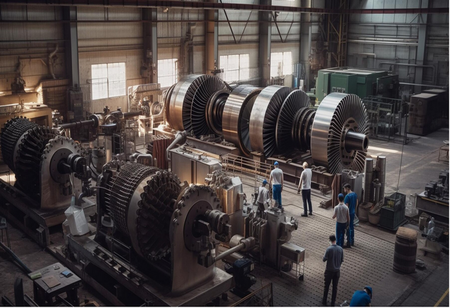
According to a research released on Monday by business lobby Ficci, growth in India's manufacturing sector increased in the June-September quarter (Q2) and is likely to continue for the rest of Fiscal Year 2023-24 (FY24). According to the poll, 79% of respondents reported increased output levels in the second quarter of fiscal year 24 compared to the previous year.
Ficci evaluated 380 industrial organizations having a combined annual turnover of more than Rs 4.9 trillion in ten major industries, including vehicles and auto components, capital goods, cement, and chemicals.
Manufacturing capacity utilization was better than 74% in the second quarter of FY24, indicating that the industry is still active. It is slightly higher than the previous quarter's capacity utilization of 73%.Future investment prospects have also improved over the previous quarter, with more than 57% of respondents planning investments and expansions in the next six months.The Ficci, or Federation of Indian Chambers of Commerce and Industry, analysis found that "this is also a slight improvement over the previous survey."
According to the research, electronics and white goods, cement, and automotive and machine tools grew significantly and are "clear outperformers," while capital goods and construction machines, chemicals, textiles, metals, paper, and other industries grew moderately.
Despite the fact that exports performed better than in prior quarters, more than 40% of respondents said demand is a major restriction. More than 48% of respondents reported increased exports in Q2, compared to 33% in Q1. High raw material prices, higher finance costs, logistics, and other supply chain disruptions were all impediments.
"Whether it's domestic demand or exports, this is still a major constraint." "In light of the country's growth ambitions, further improvement in export demand is required," the research states. In the next three months, 38% of respondents intend to hire new employees, while 18% believe manufacturing is understaffed.

